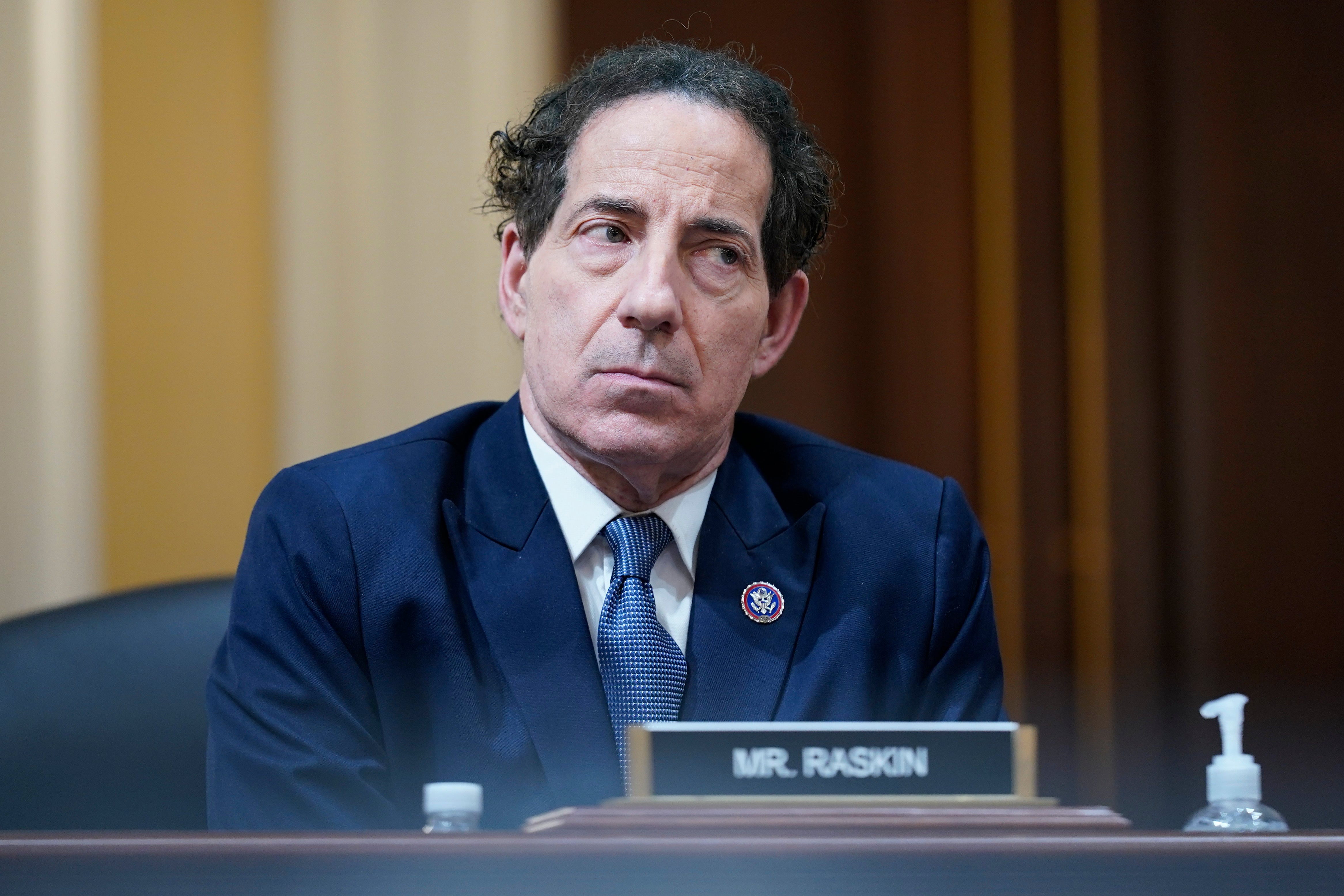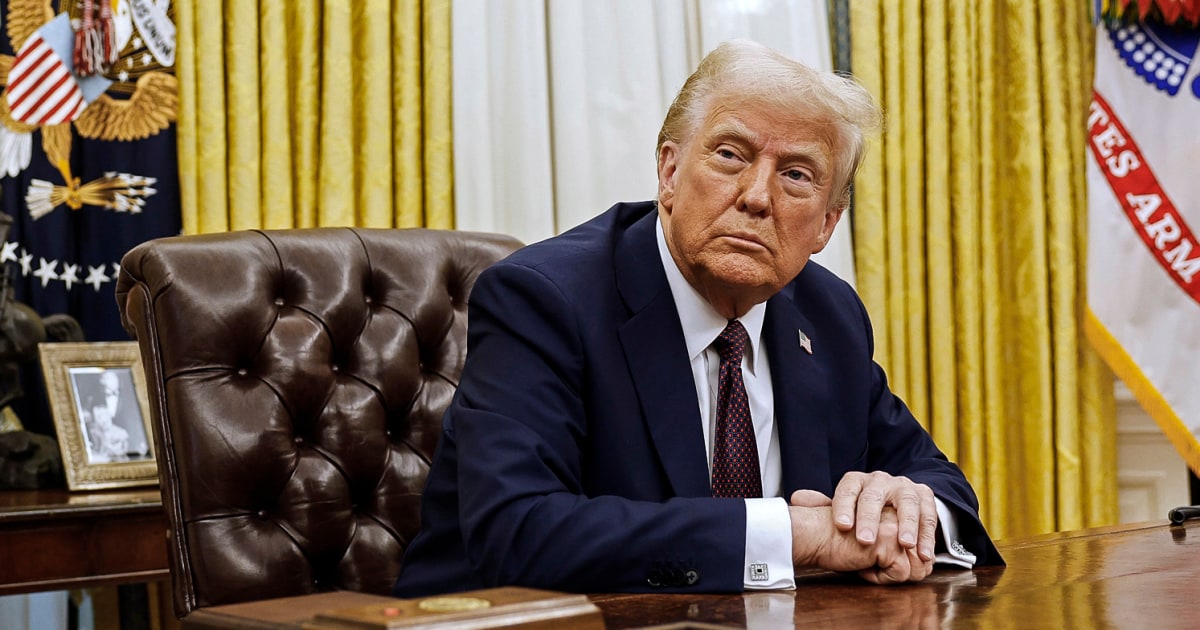Trump's DOJ fights mass firings is a topic that has captured the attention of political analysts, legal experts, and the general public alike. The actions taken by the Department of Justice during former President Donald Trump's administration continue to spark debates about accountability, transparency, and the separation of powers. In this article, we will delve into the details of these mass firings, their implications, and the broader context in which they occurred.
This issue is not merely about personnel changes; it is a reflection of the power dynamics within the executive branch and the DOJ's role in upholding the rule of law. Understanding the motivations behind these firings, the legal challenges they posed, and the aftermath can provide valuable insights into the functioning of American governance.
As we explore this subject, we will examine the historical background, key players involved, and the legal arguments presented. By the end of this article, readers will have a comprehensive understanding of why Trump's DOJ fought mass firings and the impact it had on the nation's legal and political landscape.
Read also:Julia Butters The Rising Star Who Captivates Hearts Worldwide
Table of Contents
- Background of Trump's DOJ
- Key Players Involved
- Understanding Mass Firings
- Legal Battles and Challenges
- Political Implications
- DOJ's Role in Governance
- Public Reaction and Media Coverage
- Long-Term Effects
- Lessons Learned
- Conclusion
Background of Trump's DOJ
The Department of Justice under President Donald Trump underwent significant changes, with key appointments and policy shifts that defined its tenure. Established in 1870, the DOJ is responsible for enforcing federal laws, ensuring public safety, and upholding justice. During Trump's presidency, the DOJ faced scrutiny over its independence and the political influence it exerted on high-profile cases.
Trump's DOJ was characterized by its aggressive stance on immigration, deregulation, and criminal justice reform. Key figures such as Attorney General William Barr played pivotal roles in shaping the department's agenda. However, the administration's approach to personnel management, particularly the mass firings of U.S. attorneys, became a focal point of controversy.
A Brief History of the DOJ
The DOJ has a storied history of adapting to changing political climates while maintaining its core mission. From prosecuting organized crime in the 1960s to addressing civil rights violations in the 1970s, the department has consistently evolved to meet the needs of the nation. Trump's DOJ, however, marked a departure from traditional norms, raising questions about its adherence to established legal principles.
Key Players Involved
To fully understand the dynamics of Trump's DOJ and its fight against mass firings, it is essential to examine the individuals who played crucial roles in these events. Key figures include former Attorney General William Barr, President Donald Trump, and various U.S. attorneys whose positions were at stake.
William Barr, a seasoned lawyer with a long history in the DOJ, was instrumental in shaping the administration's legal strategy. His decisions often aligned with Trump's political priorities, leading to accusations of partisanship and undermining the department's independence.
President Trump's Role
Donald Trump's leadership style emphasized loyalty and control, which extended to his management of the DOJ. His demand for accountability and alignment with his administration's goals led to clashes with career officials and independent-minded prosecutors. This tension ultimately resulted in the mass firings that dominated headlines.
Read also:Draya Michele The Iconic Fashion Designer Redefining Style
Understanding Mass Firings
Mass firings within the DOJ under Trump's administration were unprecedented in recent history. These firings involved the dismissal of U.S. attorneys across the country, many of whom had been appointed by previous administrations. The rationale behind these firings was often cited as a means of aligning the DOJ with the administration's priorities.
However, critics argue that these actions undermined the DOJ's independence and set a dangerous precedent for future administrations. The abrupt nature of the firings and the lack of clear justification further fueled suspicions of political interference.
Justifications for the Firings
- To align DOJ policies with the administration's agenda
- To ensure loyalty to the president and his political objectives
- To address perceived inefficiencies or lack of alignment with key priorities
Legal Battles and Challenges
The mass firings initiated by Trump's DOJ did not go uncontested. Legal challenges were filed by advocacy groups, former DOJ officials, and concerned citizens, arguing that the firings violated principles of due process and the separation of powers. These cases highlighted the complexities of balancing executive authority with the need for judicial independence.
Courts were tasked with determining whether the firings were justified under the law and whether the DOJ's actions were consistent with constitutional norms. While some challenges were dismissed, others prompted broader discussions about the limits of presidential power.
Notable Court Decisions
Several court decisions provided insights into the legal framework governing DOJ personnel decisions. For example, a federal court ruling emphasized the importance of maintaining a non-partisan DOJ, reinforcing the notion that political considerations should not dictate hiring and firing practices.
Political Implications
The mass firings within Trump's DOJ had significant political implications, both domestically and internationally. Domestically, they contributed to growing partisan divides and eroded public trust in government institutions. Internationally, they raised questions about the stability and reliability of the U.S. legal system.
Congressional hearings and investigations into the firings shed light on the inner workings of the DOJ and the pressures faced by its leadership. These inquiries highlighted the need for greater transparency and accountability in executive branch operations.
Congressional Response
Congress responded to the mass firings by holding hearings, issuing subpoenas, and passing legislation aimed at safeguarding DOJ independence. Bipartisan efforts were made to address concerns about political interference and to ensure that future administrations would adhere to established legal norms.
DOJ's Role in Governance
The DOJ plays a critical role in the governance of the United States, serving as the guardian of the rule of law and the protector of civil liberties. Its independence is vital to maintaining public confidence in the legal system and ensuring that justice is administered fairly and impartially.
Trump's DOJ, however, faced criticism for prioritizing political considerations over legal principles. This shift raised concerns about the long-term impact on the department's credibility and its ability to fulfill its mission effectively.
Maintaining DOJ Independence
Efforts to maintain DOJ independence have been a recurring theme in American politics. Legal scholars and advocacy groups emphasize the importance of protecting the DOJ from undue political influence, arguing that this is essential for preserving the integrity of the legal system.
Public Reaction and Media Coverage
The mass firings within Trump's DOJ sparked widespread public reaction and extensive media coverage. Public opinion was divided, with some supporting the administration's efforts to streamline the DOJ and others criticizing what they perceived as an assault on judicial independence.
Media outlets played a crucial role in shaping public perception, with investigative journalism uncovering details about the firings and their implications. Social media further amplified the discourse, allowing citizens to engage directly with the issue and voice their opinions.
Key Aspects of Media Coverage
- Investigative reporting on the firings and their motivations
- Analysis of legal and political ramifications
- Public opinion polls and social media trends
Long-Term Effects
The long-term effects of Trump's DOJ fighting mass firings are still unfolding. While some changes may be reversible, others could have lasting impacts on the DOJ's structure and function. The precedent set by these firings could influence future administrations' approaches to personnel management and policy implementation.
Efforts to restore public trust in the DOJ and reinforce its independence will require sustained commitment from policymakers, legal professionals, and the public. Lessons learned from this period can inform future reforms aimed at strengthening the department's resilience to political pressures.
Potential Reforms
- Strengthening whistleblower protections
- Implementing transparency measures
- Reinforcing ethical standards within the DOJ
Lessons Learned
From the controversy surrounding Trump's DOJ fights mass firings, several key lessons emerge. First, the importance of DOJ independence cannot be overstated. Second, transparency and accountability are essential for maintaining public trust in government institutions. Finally, the need for checks and balances in the executive branch remains a critical safeguard against abuse of power.
As the nation continues to grapple with the implications of these events, it is imperative to learn from the past and work towards a more equitable and just legal system.
Conclusion
Trump's DOJ fights mass firings represent a complex chapter in American political history. While the motivations behind these firings remain a subject of debate, their impact on the DOJ and the nation's legal landscape is undeniable. By examining the historical context, key players, and legal challenges, we gain a deeper understanding of the forces that shaped these events.
We invite readers to engage in the conversation by sharing their thoughts and insights in the comments section below. For further reading, explore our other articles on topics related to politics, law, and governance. Together, we can contribute to a more informed and engaged citizenry.


